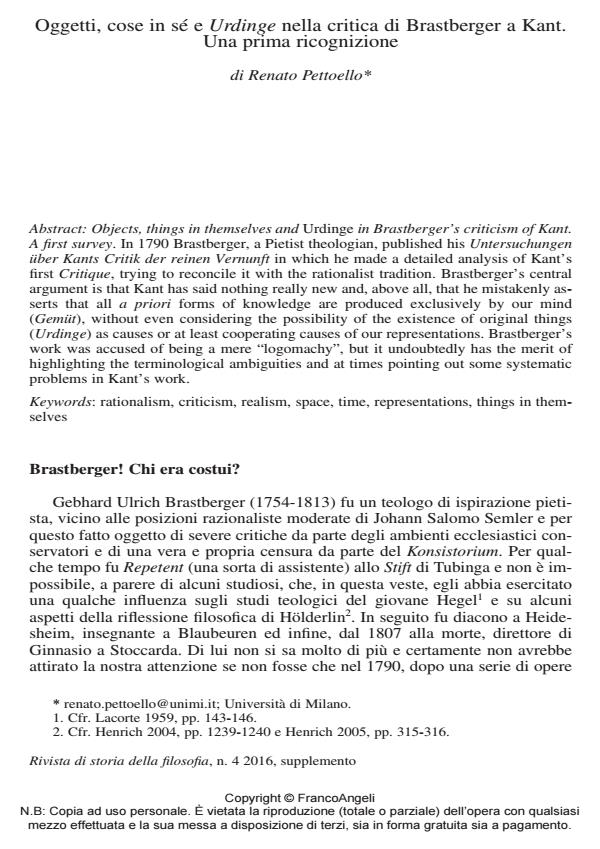Objects, things in themselves and Urdinge in Brastberger’s criticism of Kant. A first survey
Journal title RIVISTA DI STORIA DELLA FILOSOFIA
Author/s Renato Pettoello
Publishing Year 2016 Issue 2016/suppl. 4
Language Italian Pages 19 P. 231-249 File size 127 KB
DOI 10.3280/SF2016-004-S1016
DOI is like a bar code for intellectual property: to have more infomation
click here
Below, you can see the article first page
If you want to buy this article in PDF format, you can do it, following the instructions to buy download credits

FrancoAngeli is member of Publishers International Linking Association, Inc (PILA), a not-for-profit association which run the CrossRef service enabling links to and from online scholarly content.
In 1790 Brastberger, a Pietist theologian, published his Untersuchungen über Kants Critik der reinen Vernunft in which he made a detailed analysis of Kant’s first Critique, trying to reconcile it with the rationalist tradition. Brastberger’s central argument is that Kant has said nothing really new and, above all, that he mistakenly asserts that all a priori forms of knowledge are produced exclusively by our mind (Gemüt), without even considering the possibility of the existence of original things (Urdinge) as causes or at least cooperating causes of our representations. Brastberger’s work was accused of being a mere "logomachy", but it undoubtedly has the merit of highlighting the terminological ambiguities and at times pointing out some systematic problems in Kant’s work.
Keywords: Rationalism, criticism, realism, space, time, representations, things in themselves
Renato Pettoello, Oggetti, cose in sé e Urdinge nella critica di Brastberger a Kant. Una prima ricognizione in "RIVISTA DI STORIA DELLA FILOSOFIA" suppl. 4/2016, pp 231-249, DOI: 10.3280/SF2016-004-S1016